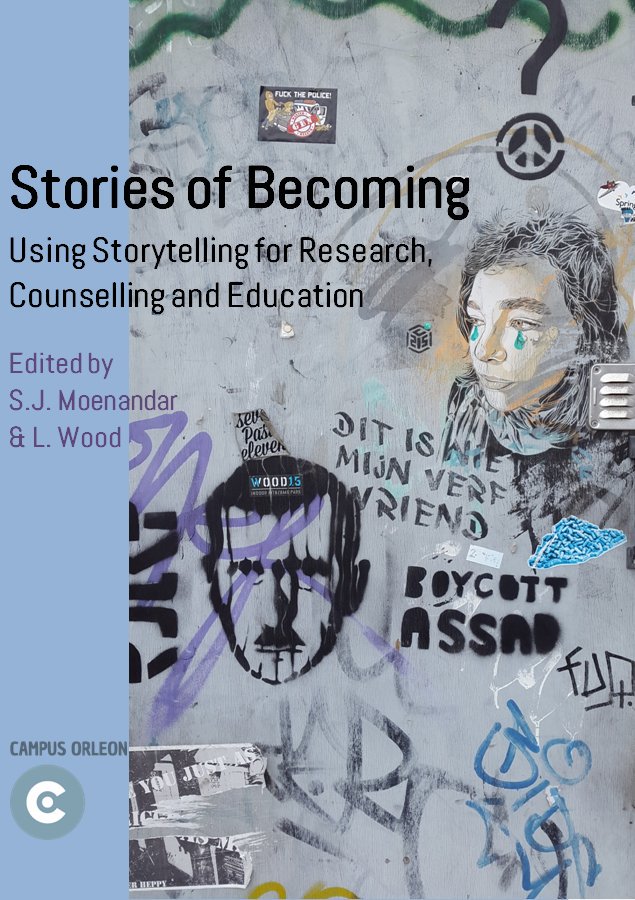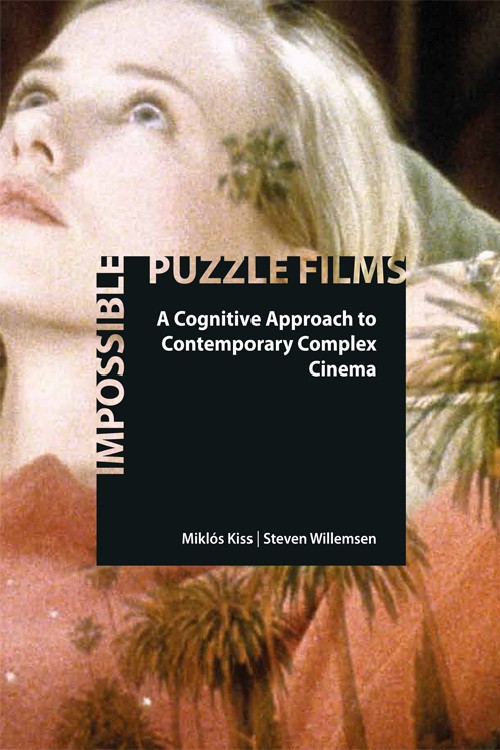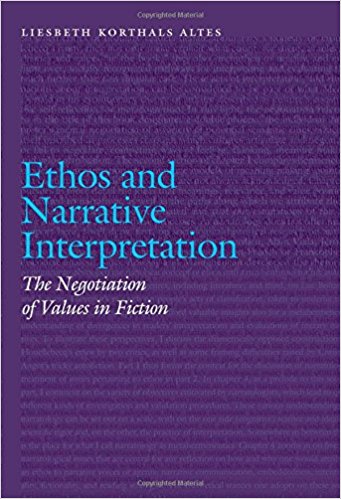Special Issue:
NARRATIVE RESISTANCE
Guest Editorial
Hart Cohen
Western Sydney University
Rachel Morley
Western Sydney University
S.J. Moenandar
Avans University of Applied Sciences
Whenever money and power are in agreement, it is probably time to resist whatever they agree upon. These days, politicians and corporations seem to love nothing more than telling a good story. There are stories for brands, stories for strategies, stories for leaders, and stories for campaigns. Indeed, in the past five years it is fair to say that at the big end of town storytelling has become a tool of critical influence. With this co-opting of narrative for commercial and political gain now playing out across a number of cultural spaces, often with unnerving effect, we think it is time to think about a counter-response, perhaps what might be thought of as a resistance to storytelling itself. Or, at least, a resistance to whatever it is that the powers that be think makes a good tale – and their reasons for telling one.
That storytelling has become so valuable in politics and business in neoliberal times is hardly surprising. Stories make the heart beat faster. Told well, they can make us swell with feeling; they affect us, they influence us, they can change our thinking, and they can compel us into action. Stories also normally lead to closure; they are geared towards an endpoint where everything that happens is retrospectively rendered necessary and purposeful. In a typical contemporary Hollywood film, for instance, illness, trauma, suffering, or whatever else the hero experiences, is made meaningful through the unfolding plot, which inevitably culminates in an achievement and a rallying call to arms. In the Hollywood narrative, the experiences of the hero become an ‘investment’, often culminating in significant change. As such, a typical Hollywood film mirrors perfectly neoliberal values such as being endlessly flexible and always growing, to never stop seeing things as merely a promise of something bigger and better.
Beyond the movie theatre, similar types of storytelling have become popular among corporations and politicians. The viral narrative – a story that is simple and catches the imagination of people to the extent that it spreads like an epidemic – is the holy grail of marketers and spin-doctors. The success of political campaigns such as Donald Trump’s presidential run and Brexit, as well as the rise of the populist Freedom Party (PVV) in the Netherlands can, to a large extent, be understood through the compelling and encompassing narratives that framed their agendas for change. The politicians at the centre of these campaigns, and the handlers and press agents who crafted them, knew the fine details of policy were unlikely to carry the day; the rationale for change needed, instead, to be embedded in a convincing narrative – an ‘every man’s story’ that would sway the personal and unite the public mind. As the author of One Flew Over the Cuckoo’s Nest, Ken Kesey, once said, ‘To hell with facts! We need stories!’
To narrate experiences is to make them meaningful. Through emplotment – viz., merging events into the form of a plot – we deal with unsolved contradictions and frictions. This is a process in which, as Fredric Jameson described it, ‘the individual narrative, or the individual formal structure’ comes to function as ‘the imaginary resolution of a real contradiction’ (Jameson, 2002, p. 62). Thus, storytelling functions as a summoning of ghosts in order to lay them to rest. It is through plot that our world becomes meaningful because through the plot all narrated events become purposeful: this happened because that happened. Here, the chaos of life – its ‘plotlessness’ – finds order and a narrative ‘through-line’, evinced as it was via slogans such as ‘Make America great again’ (Trump, 2017), ‘Take back control’ (Brexit), and ‘Reclaim the Netherlands’ (PVV).
However, while on the one hand storytelling and narrative are clearly favourite tools of the masters, they have also always served as strategies of resistance, opening up ethical spaces where dominant and restricting notions of class, gender, region and race can be questioned. This is most clearly the case in narrative fiction, which may function as a ‘vast laboratory’ (Ricoeur, 1990) where experiments with estimations and evaluations, with judgments of approval and condemnation can take place. Arguably all storytelling could be used for such experiments. As much as a tool of persuasion, storytelling has a long history of use in resisting dominant forms of knowledge formation, as sites for contestation, writing back to, and reimagining. As bell hooks so potently put it, ‘[l]anguage is also a place of struggle’ (1989, p. 15).
In this special issue, we have collected papers that critically assess the impact and influence of stories that resist and refuse the master narratives and their tellers. As such, it may be of interest to place the genesis of the issue in its temporal context: it arose out of a series of encounters at the ‘Ethics of Storytelling’ conference held in Turku University, Finland in 2015 and the 2016 ‘Uses of Narrative Winter School’ of the LACE (Literature and Change in Europe) network. When these events took place, David Bowie, George Michael, Prince and Leonard Cohen were all still alive and Barrack Obama was president of the United States. Looking back, it seems like a different world. Overtaken by the international changes that brought 2016 to its conclusion – which few will not have experienced as dramatic in some way or another – we can conclude that resistance to events that transpire over time is futile.
At the same time, the idea of resistance is more critical than ever with the aforementioned neoliberalist worldview of flexibility and constant growth having arguably culminated in what, in many ways, feels like an era of chaos. Endless flexibility and ultimate growth are, after all, its companionable bedfellows. As we pass 100 days of governance of the new administration in the United States, it is difficult not to see the election of Donald Trump as the 45th president of the United States of America and Trump himself as the ‘chaos president’ who continues to wreak havoc with no end in sight.
Trump is, in any case, interesting, both in the light of ‘narrative’ and of ‘resistance’. Trump is a highly skilled yielder of the power of storytelling, a master weaver of narratives of seduction. Many of these narratives, it has been argued, are attempts to represent the ultimate in resistance – to the media and political elites, to the status quo, to the way politics in the US have been conducted. The story of Trump – carefully crafted, of course – is easily recognisable to his contemporaries. And, as Don Watson points out in ‘American beserk’, a recent piece in The Monthly, it is thoroughly American. Trump is, as Watson phrases it, ‘dredged straight from the brute material of American culture’ (Watson, 2017, p. 8). One can find traces of ‘Trumpness’ in the high reaches of American literary classics such as The Great Gatsby and It Can’t Happen Here, as well as in films such as Batman, Who Framed Roger Rabbit, Bulworth (where Warren Beatty plays a senator who goes troppo). Watson omits Citizen Kane where Orson Wells plays a version of the wealthy media baron, Randolph Hearst, whose hubris brings him crashing down to earth. (Trump Tower and Mar-a-Lago arguably mirror Kane’s Xanadu.) Watson’s list of literary and cinematographic prefigurations of Trump is one of con artists and confidence men – after all, selling and hucksterism are the American way. That it is also a list of great narrative artworks, is cold comfort.
The point here is that the story of Trump is not new – and that is arguably part of its success. Moreover, we would argue that its attractiveness stems partly from the fact that it seems, in many ways, to be a story of resistance. Fed on a diet of Hollywood narratives of the angry white male hero and media spin of politicians as mavericks, voters may have recognized this as a rebel story: Trump resists and refuses expected decorum (by being explicitly sexist and racist) in how he speaks about women, immigrants and non-western ethnicities, and in the way he has sought to wrest control of his own story by bypassing the usual channels and communicating directly with his ‘public’ via Twitter. Along the way, Trump resists being truthful and then lies about his untruthfulness.
This is a forceful reminder that even though it is true that storytelling and narrative may function as strategies of resistance, the ethical spaces they open up may not always be morally sound. Trump and his staffers’ penchant for disputing facts with ‘alternative facts’, and labelling any stories that might counter his view of the world as ‘fake’, has certainly opened up a new ethical space, one marked by a particular kind of resistance, but it is frighteningly a-moral in nature – or maybe we should say ‘post-moral’?
We seem to have gone down a rabbit hole, ending up in a Wonderland – not in the sense of a land of wonders, but a land where we constantly find ourselves wondering at how everything is suddenly morally contrariwise. One cannot help but feel closer to fiction than reality. Could we imagine a reality television host and celebrity being elected president of the United States on a ticket of overt xenophobia? Yes – as a Hollywood script, a Netflix series or something conjured up by the successors to the makers of the ‘West Wing’. If narrative fiction is, indeed, humanity’s ‘giant laboratory’, then clearly the Trump narrative is more of a Frankenstein’s monster, an experiment turning against the mad professor that invented it, an exercise in creative thinking gone terribly wrong.
We would argue that we need a double strategy in the face of all of this. First of all, in these times of chaos, we need stories of resistance against Trump, his mindset and minders more than ever. Secondly, we are in need of narrative savviness: it seems people have to become better able to resist the seductive hold of storytelling, and to recognise when the storyteller is a Panned Piper of Hamelin.
In the light of the first strategy, we may ask what sort of storytelling befits these times of chaos? When it comes to America, here we need to be aware of possible pitfalls. There are those who opposed Trump’s politics but who welcomed his ascendancy, particularly in thwarting a Hilary Clinton administration. The strategic thinking for these pundits was that at least with Trump, the clarity of how to oppose and why to oppose would be morally beyond dispute. This in itself seems a seductive narrative, pointing towards an endpoint where all will be well that ends well – even if the beginnings are morally bankrupt. However, the same argument was once made regarding the rise of fascism in the early part of the 20th century, leading to unspeakable crimes. There is no telling if we are in the equivalent of the Weimar republic when the seeds of German Nazism were planted and took shape. As noted in recent commentary, Hindenburg’s appointment of Hitler as Chancellor was exceedingly optimistic given what unfolded in the mid-20th century. Resistance to Trump may or may not be futile, but it is necessary if we are to live with and through our shared political/historical moment.
The second strategy would entail the refusal to engage in storytelling. Narrative resistance may, at times, simply be a resistance to narrative itself – at least to a specific type of story in which narrative wholeness and roundedness become tools of coercion. A story may have good reason to be told in a manner that moves beyond the limits of traditional storytelling, opting for narrative fragmentation, an episodic plot, or any other narrational strategy that foregrounds reality’s lack of simplicity, easy solutions, homogeneity, and unmasks those narratives that imply simple solutions to the friction that this lack may cause.
At this crossroads of politics and history, we offer the following collection of papers, developed alongside the extraordinary events of 2016. In this regard, we think they make an excellent case for how to use the concept of resistance as a tool for thinking about the present and in this way indispensable to how one might think to resist it.
Miklós Kiss and Steven Willemsen explore whether what they call ‘impossible puzzle films’ could be seen as examples of resistance to narrative. In impossible puzzle films, the film’s narrative structure undermines its narrative logic to such an extent that no coherent story emerges from viewing them, while at the same time constantly encouraging viewers to try and do so. Discussing the bizarre narrative loops in the French film Réalité, they argue that this film’s narrative structure is turned against narrative itself and as such, is indeed a case of resistance to narrative, through narrative itself. One could also say that in these films, narrative is pushed to such extremes that it caves in on itself, leading to a jarring viewing experience. As the authors argue, this experience establishes its own aesthetic that leaves viewers more aware of the workings of narrative.
S. J. Moenandar’s essay, ‘Narratives of resistance and resistance to narrative: The tragic picaroon as an alternative model for life stories’ explores the way the picaresque genre has been used as an ethical strategy to query, resist and even refuse notions of completion and resolution, particularly when it comes to the narration of historical events underscored by inequities of power and oppression. Through an analysis of the novels The Tin Drum (Günter Grass), Midnight’s Children (Salman Rushdie) and The Long Awaited (Abdelkader Benali), Moenandar argues for the enabling power of a ‘continuing resistance not only to the narratives of nationalism and history but, ultimately, to all narrative’, and for the imaginative potential meted out by works that offer an ‘alternative to dominant stories in the neoliberal realm’.
In his paper, ‘Beyond Resistance: Subtraction as Methodology in Badiou and Vertov’ Iqbal Barkat mobilises Badiou’s concept of ‘subtraction’ as a way of giving the idea of resistance a philosophical bent. One of the ways to construe a truly resistant practice is to think of it as subtractive. For Barkat, subtraction implies removal, a distancing and insubordination and therefore has the morphology of resistance. Like resistance, Barkat argues that subtraction can also be affirming and enabling. Barkat’s exemplar of subtraction is the filmmaking of Dziga Vertov – who in his revolutionary project demonstrates the rigorous manifestation of resistance/subtraction within the field of artistic practice.
Benjamin Matthews finds resistance in the organised networks that have emerged in contemporary world of labour precarity – a way of expressing the fluid and sometimes debilitating insecurity of work situations. ‘Precarity, globalism and resistance in emergent collectivism: The case of Enspiral’ presents the example of the ‘Enspiral Network’, established in 2010 in Wellington, New Zealand, as a panacea against labour precarity. As Matthews writes, ‘Participants … participate in public fora via a range of physical and digital platforms, reformulating activism as an interventionist narrative… nurturing the local via both everyday and public forms of resistance.’ Mobilising Lovink and Rossiter’s concept of the ‘orgnet’ (Lovink, 2007; Rossiter, 2006b; Lovink & Rossiter, 2011) Matthews is able to locate these characteristics as part of a larger picture of interacting networks that combine a novel mix of entrepreneurial market pragmatism and ethically framed social enterprise.
In her essay ‘Just another kiss: Narrative and database in fan vidding 2.0’, Donata Meneghelli looks at the power of participatory media as a form of narrative reinterpretation and, occasionally, contestation. Using the work of Genette, Meneghelli develops a taxonomy for analysing fan-produced videos across three primary criteria; namely, the vid’s relationship to the original source, the audience’s perceptions and experiences with that source, and the fan vidder’s editing style. The essay pays particular attention to the ‘cuts’ or what Menghelli calls the ‘logic’ of a work – the way in which the vidder engages with the original source material to refashion the story, so much so that sometimes the newly realised work comes to be situated within a kind of ‘scrap economy’, one ‘where the fragment is cut from its original narrative chain to be associated with other fragments of the same kind in an often-obsessive repetition.’
We round off this issue with an essay that works with the Trump inspired ‘wall against Mexico’. There are now daily disasters that emerge from the Trump White House that, as Michael Tomasky writes, ‘it can be difficult to turn our gaze from the stupefying parade of announcements and events and tweets and leaks-and leaks-and leaks – that show us a White House at once wholly undisciplined while trying to impose an ideological discipline upon the nation’s capital that finds no modern precedent in either party’ (Tomasky, 2017, p. 12). From the Russian influence scandal, the failure of repeal and replace of the ACA, the Muslim ban, the anti-media fake news tirades, Trump never ceases to disrupt and renege on prior statements. One of the most notorious campaign moments was his promise to build a wall on the southern border with Mexico (and ‘get the Mexicans to pay for it’). This has remained on the agenda and tender processes have commenced. Antonio Castillo, in his essay, ‘U.S.-Mexico Relations are Officially Off-the-Wall’, takes up the Mexican responses to this Trump initiative beyond the outrage expressed by the Mexican government. As Castillo writes, ‘Trump has taken the US disrespect towards its Spanish-speaking neighbour to a level even Mexicans – a resigned bunch – won’t put up with any longer’. Mexican citizens have also planned their own local responses to the wall signalling that whatever may emerge in the macro-political sphere will have a local and sometimes politically creative engagement by those within the uncertain world that has been thrust upon them.
Hart Cohen, Rachel Morley, S.J. Moenandar
References
bell hooks (1989). Choosing the margin as a space of radical openness. Framework: The Journal of Cinema and Media, No. 36, pp. 15-23
Jameson, Fredric. The Political Unconscious. Narrative as a Socially Symbolic Act. London, UK and New York, NY: Routledge, 2002.
Ricoeur, P. (1992). Oneself as Another. Chicago, IL: University of Chicago Press.
Tomasky, M. (2017, April, 12-13). Trump: The Scramble, The New York Review of Books Retrieved from http://www.nybooks.com/articles/2017/04/06/trump-the-scramble/
Watson, D. (2017, March 8-11). American beserk, The Monthly Retrieved from https://www.themonthly.com.au/issue/2017/march/1488286800/don-watson/american-berserk
Refereed Articles
-

Resistance to narrative in narrative film: Excessive complexity in Quentin Dupieux’s Réalité (2014)
Steven Willemsen
Read Abstract Read Article
University of Groningen
Miklós Kiss
University of Groningen

Narratives of Resistance and Resistance to Narrative: The Tragic Picaro as an Alternative Model for Life Stories
Sjoerd-Jeroen Moenandar
Read Abstract Read Article
Avans University of Applied Sciences

Beyond Resistance: Subtraction as Methodology in Badiou and Vertov
Iqbal Barkat
Read Abstract Read Article
Macquarie University

Precarity, globalism and resistance in emergent collectivism: The case of Enspiral
Benjamin Matthews
Read Abstract Read Article
Western Sydney University

Just Another Kiss: Narrative and Database in Fan Vidding 2.0
Donata Meneghelli
Read Abstract Read Article
University of Bologna
Essays
-

US-Mexico relations are officially off-the-wall
Antonio Castillo
Read Abstract Read Article
RMIT University
Commentary
-

And then an elephant came along
Hart Cohen
Read Abstract Read Article
Western Sydney University
Rachel Morley
Western Sydney University
Sjoerd-Jeroen Moenandar
Avans University of Applied Sciences
Book Reviews
-

Stories of Becoming: Using Storytelling for Research, Counselling and Education
Katie Sutherland
Read Review
Western Sydney University
Impossible Puzzle Films: A Cognitive Approach to Contemporary Complex Cinema
Sjoerd-Jeroen Moenandar
Read Review
Avans University of Applied Sciences
Ethos And Narrative Interpretation: The Negotiation Of Values in Fiction
Sjoerd-Jeroen Moenandar
Read Review
Avans University of Applied Sciences
